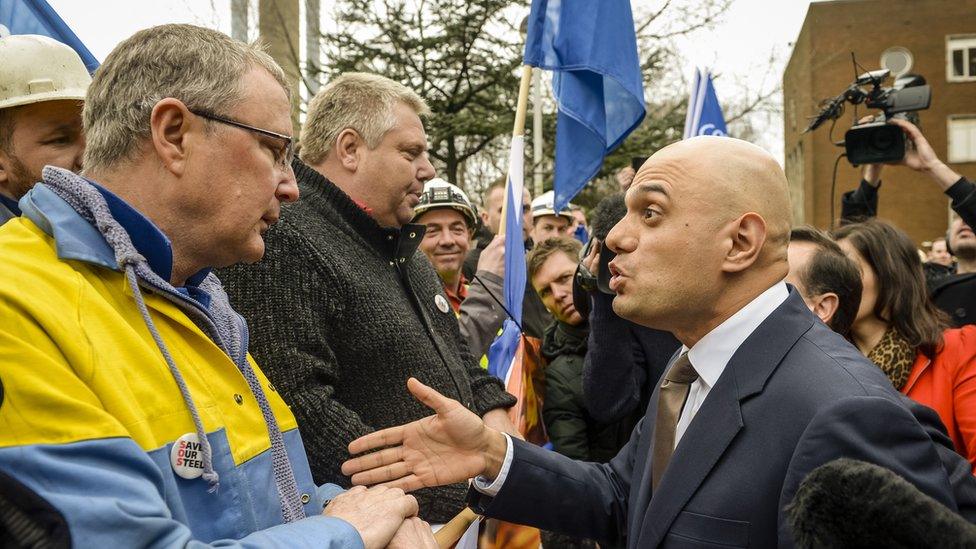Between a rock and a hard place: Unlocking a steel crisis
- Published
- comments

Here is the dilemma:
Port Talbot is not viable.
Shutting Port Talbot would create an economic and social disaster.
Tough one.
Those were the twin barrels the head of Tata Steel UK fired at a committee of MPs today.
Bimlenbra Jha, chief executive of Tata Steel UK, told the Business select committee that the UK had "structural weaknesses" that made the UK steel industry uncompetitive.
Business rates and high energy costs were top of the list.
On energy, he said that if Tata was operating in Germany, its energy bill would be £40m a year lower. The Tata chief defended the company's decision to put the business up for sale saying that the company and its shareholders could not continue to bleed. The business is estimated to be losing £1m a day.
On the other hand, shutting Port Talbot would create an "economic and social disaster" for the town and the supply chain, as well as making the pension promises to current and former workers unmanageable.
The scheme has 130,000 members and is £485m in deficit. The closure of Port Talbot would halt contributions from more than 4,000 workers making the situation worse.
The message to Business Secretary Sajid Javid was clear. Promises of support announced so far do not go far enough. Bring down energy prices and solve the pension problem - or else.

Sajid Javid is caught between a rock and a hard place
Energy costs
Mr Javid said steps had already been taken to help on energy costs with £130m paid out since 2013 to compensate high energy users who incur environmental surcharges. Some £50m of that went to Tata alone.
He said he wanted to go further by exempting steel producers from the charges in the first place but Department for Business insiders tell me that would have to go to the European Commission and could take up to two years to achieve.
The business secretary also said he was in talks with pension authorities to find a solution to Tata's pension fund deficit. Again, that will take time - time that Tata doesn't have.
Although Mr Jha said there was no "drop dead" time limit, the company has not denied reports it wants initial expressions of interest next week if a credible buyer is to be found by the end of May.
It seems that the government's recent offer to take a 25% stake in a manufacturing industry for the first time since the 1970s was not the show-stopping attraction needed.
It's only hard work on the nitty gritty of energy and pension costs that have any hope of unpicking this steel knot.
- Published27 April 2016
- Published25 April 2016
- Published21 April 2016
- Published14 April 2016
- Published12 April 2016
- Published11 April 2016